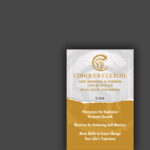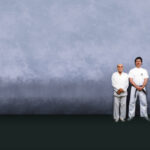The greatest lie of the modern age is that you’re free. You can go anywhere, buy anything, say almost whatever you want — and yet, for all that mobility, most people never actually move forward. Their lives orbit around work, consumption, distraction, and sleep. They confuse activity with progress and comfort with peace. This is nearly ubiquitous.
And what’s most startling is…this isn’t an accident. It’s design.
Every major system you interact with explicitly or implicitly — political, corporate, even criminal — operates on one unspoken law: people are easiest to control when they’re busy, entertained, and just afraid enough to obey. The system doesn’t need your permission. It just needs your participation. And participate you shall.
In a very real way, you were born into a game you didn’t choose. To escape it, you have to learn how it’s played.
The Invisible Rulebook: Game Theory 101
In the 1950s, a mathematician named John Nash decoded the logic behind both competition and cooperation. His concept — the Nash Equilibrium — explains how individuals, corporations, and governments can all act in their own self-interest and still end up trapped in a stable but fully stagnant balancing act that leads to nowhere.
When every player in a system chooses what’s best for themselves, the system reaches a kind of uneasy compromise. No one player can improve their position without threatening the balance, so they stop trying. It’s an equilibrium — but it’s certainly not progress.
Look around: that’s where we live now.
Governments want order, not autonomy. Corporations want profit, not empowered citizens. Criminal syndicates want anarchy, not reform. Each acts rationally according to its own incentive — yet the outcome is irrational for humanity. The collective effect is a quiet, comfortable paralysis that finds its way into every advancement human kind has produced.
It’s a potent system within systems that rewards conformity and punishes major change.
And as long as you keep playing by its rules, it wins — no matter how “smart,” “educated,” or “aware” you think you are.
Demand Through Inconvenience
Most people don’t notice how deeply this game has been engineered into their routines. They call it “life.”
You stand in lines. You fill out forms. You buy upgrades for devices you already own. You pay convenience fees, “service charges,” and “subscriptions” for things that once belonged to you outright.
Economists call this demand through inconvenience — a system designed to make freedom costly and dependence easy. It’s a behavioral chokehold that’s become a business model. Bureaucracy, red tape, and endless digital friction serve to train the population to surrender initiative. Every hour you waste navigating broken systems conditions you to stop resisting.
And yet, the cleverest part of this trap is that it’s wrapped in luxury. You can have anything delivered to your doorstep. You can live your entire life from behind a screen. You can be endlessly entertained while quietly losing your soul.
Convenience has become a sedative. We have started to confuse ease with progress. We stop building anything that requires effort that turns into strain — and, in this, the authentic human being inside you begins to decay. As you read this, you sense its truth.
The Prisoner’s Dilemma: Why Fear Wins
There’s another piece of Game Theory that explains why this equilibrium holds: the Prisoner’s Dilemma.
Two prisoners are offered a deal. If both stay silent, they’ll each serve a short sentence. If one betrays and the other stays loyal, the betrayer walks free while the loyal one suffers. If both betray, both lose. Logically, cooperation is best — but fear of betrayal drives both to defect from the logic of cooperation..
The same fear governs modern society.
People don’t trust each other anymore. We’ve been taught to see every other person as a competitor, a threat, or a potential enemy. Community is replaced by narrow tribalism. Loyalty is replaced by the algorithms. Algorithms shape our understanding, our worldview, and our identity.
Fear fractures cooperation — and fractured people are easy to manage, even manipulate. When we stop standing together, we stop being dangerous to the structures that manipulate us. We no longer build movements together; we chase individual survival and scale a “success” ladder to nowhere.
The system wins not through violence, but through division.
The Sunk Cost Trap: Why People Stay
Once you’ve spent enough time and energy inside a system, you start to believe leaving it would be foolish.
That’s the sunk cost fallacy — the belief that because you’ve already invested so much, you have to stay. You see it everywhere. People cling to careers that destroy their spirit because “it pays the bills.” They stay in debt because “that’s how everyone lives.” They outsource their thinking to headlines and influencers because it’s easier than learning and thinking for themselves.
You’ve given too much to walk away.
That’s exactly what the system counts on. It builds lifelong pipelines — student loans, mortgages, social media addiction, even moral outrage — that tether you to cycles you’ll never finish paying for. You become too invested in your own captivity to leave.
The longer you stay, the smaller you become.
The Profit of Stagnation
This equilibrium feeds the top while starving the soul.
Governments grow stronger when you obey. Corporations grow richer when you consume. Criminal networks thrive on the weakness that comes from moral drift and ambivalence.
And the result? A population that’s well-fed, well-distracted, and spiritually exhausted. People talk about “mental health crises” as though they’re mysterious epidemics, but it’s the natural outcome of a culture that worships comfort and fears profound effort.
You cannot grow without resistance. You cannot mature without discomfort. These concepts are as real as natural law. Yet every innovation of the last century has been built to remove both.
That’s how the system wins. It doesn’t break you; it sedates you.
The Shrinking Orbit
The more you trade effort for ease, the smaller your world becomes. You stop exploring. You stop questioning. You stop risking. You accept whatever’s handed to you because at least it’s predictable.
The system thrives on that contraction. A stagnant human being doesn’t question power. They don’t organize, innovate, or rebel. They simply adapt to the smaller cages that mark their surrender to the systems that control them.
You were never meant for this. You were designed to expand, to create, to fight, to rise. You are not a consumer by nature — but you are a builder by design.
But to reclaim that, you can’t just read about it. You have to train it.
The Exit Ramp: Training as Rebellion
Freedom isn’t an idea. It’s a capacity. And capacity must be built under pressure.
You can’t think your way into courage. You have to earn it with repetition, sweat, and struggle. You have to teach your nervous system to do what your intellect already knows: that fear is not fatal.
That’s why Krav Maga Houston exists.
It’s not a gym. It’s a forge for human beings. Every class is a test of will and awareness. Every drill forces you to confront your instincts — the freeze, the panic, the hesitation — and retrain them into action, clarity, and composure.
Here, fear is not your enemy; it’s your teacher. Pressure isn’t punishment; it’s preparation. Each strike, defense, and movement teaches your body to stay calm and decisive under load.
When you train this way, something deeper starts to change. You stop negotiating with fear. You stop outsourcing your strength. You start to feel what real agency is — not the kind the world sells you, but the kind no one can take away.
Rebuilding the Human Operating System
The training floor becomes the laboratory for your life. You learn that your body is not a limitation — it’s a messenger. You discover that your mind, when disciplined through physical practice, becomes quieter, sharper, more attuned to truth.
As you grow in skill, you begin to notice that everything outside the gym shifts too. Your relationships, your work, your presence. You stop reacting to pressure with panic. You start leading from composure and direction.
That’s because Krav Maga Houston doesn’t just train warriors. It trains protectors.
Protectors of families. Protectors of truth. Protectors of purpose.
In a world built to keep you passive, this is the most radical act imaginable: becoming the kind of person who cannot be easily moved, manipulated, or controlled.
The Coaching Track: Growth by Design
For those ready to go deeper, the Krav Maga Houston Developmental Manual extends this transformation beyond the body. It integrates the same principles into mindset, behavior, and purpose.
We teach you to recognize fear as data, not a directive—to replace limiting beliefs with tested truth. To live your values under pressure instead of only preaching them in the comfort of safe spaces.
This is where you learn to coach yourself and others into greater awareness, performance, and presence. You don’t just “get in shape” — you rebuild the internal architecture that makes lifelong growth possible.
Our culture produces dependents. We produce leaders.
The Invitation
You’ve seen the system for what it is — a machine that keeps people small by keeping them comfortable. You’ve felt it — the quiet unrest that comes from living beneath your potential.
Now you stand at a crossroads: continue orbiting within the equilibrium, or break free.
Krav Maga Houston is not for everyone. It’s for those who are done mistaking safety for strength. It’s for those who would rather sweat than stagnate, who understand that the mind follows the body and that truth must be trained, not merely believed.
When you walk through our doors, you enter a culture that refuses to let fear write your story. You will work harder than you thought you could. You will fail and rise again. And in that process, you’ll meet a version of yourself the system never wanted you to find — the one who moves toward challenge, not away from it.
Because the world doesn’t need more compliant consumers. It needs more courageous protectors.
Freedom isn’t found. It’s forged. And the forge is waiting.




